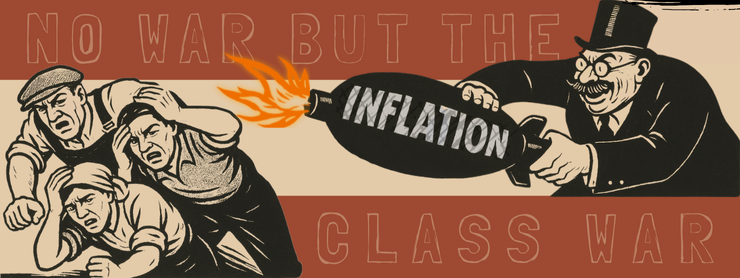Originally posted Mar. 12, 2014 on the New Economic Perspectives blog.
Trying your best to balance the Federal Budget with a limited number of Tax Dollars—and doing so while visibly displaying great compassion for your fellow citizens in the hope they might reelect you—requires some very special thinking skills. These unique skills of rational analysis and gentle compassion were on display recently when Congressman Paul Ryan gave a speech to the Conservative Political Action Conference laying the ground work for his forthcoming efforts to cut the deficit by “reforming” the welfare system.
In his speech, Mr. Ryan told the story of the stinging oppression suffered by a young boy who was given a free lunch every day at school (presumably as part of the National School Lunch Program initiated by President Harry Truman in 1946.) As Mr. Ryan related it, the young boy told a political activist that he didn’t want a free lunch. What he wanted was his own lunch in a brown paper bag like the other kids who brought their lunch to school. He wanted it in a brown paper bag, he said, because he knew that a kid with a brown paper bag had someone at home who cared for him.
This triumphant revelation of how a Federal poverty program actually oppresses the poor, makes them feel less than human, traps them in an unending dependency for “free lunches”, met with instant outrage from progressives—not, however, for the reasons you might think. The progressives, after all, are dealing with exactly the same shortage of Tax Dollars as Congressman Ryan, so there are limits to the dimensions their outrage can take. In this case Glenn Kessler of the Washington Post “Fact Checker” awarded Mr. Ryan four Pinocchios (the maximum penalty) for having told a story which his aggressive journalistic research revealed was UNTRUE. It never actually happened as Mr. Ryan related it. Hence, the progressive outrage.
What is interesting here is how neither side in this debate seems capable of dealing with reality. The fact that there is clearly an underlying truth to Mr. Ryan’s story—even if it is merely a parable—is something neither he, nor the “outraged” progressives, are able to acknowledge. Mr. Ryan implies that the boy’s mother is a feckless, lazy, good-for-nothing who doesn’t even care enough about her child to pack him a paper-bag lunch and sends him off to school to beg for food so that she, no doubt, can be free to engage in illicit activities. He also implies, and further suggests with other analysis, that the boy’s mother exhibits this sociopathic behavior because she is the victim of other Federal welfare programs which help pay her rent, pay her to be unemployed, and reduce her monthly grocery costs. The reason all of this must be TRUE is because if it isn’t true we have a big problem: If the boy’s mother really doesn’t have the means to pack him lunch everyday because, in spite of her genuine and monumental efforts to find good work and gain a financial footing, the Private Sector economy simply has no paying position to offer her—if that were the case, it would be logical to believe she actually deserves the very best assistance we, as a collective society, can provide. Believing that, however, would require diverting Tax Dollars from some other spending program (which is equally essential) or raising MORE Tax Dollars (which is politically impossible)—so you can see how tricky and important it is that (a) the mother actually doesn’t deserve the assistance, nor (b) does her child even want it.
In many ways, the thinking is even trickier for the progressives. They begin with the premise that the boy’s mother is doing the best she can with the opportunities provided to her—and that she really does deserve the very best assistance we can provide. They further believe that neglecting to provide that best assistance is not only an ethical failing, but extracts real costs from our collective well-being by laying the ground for millions of lives to fall dramatically short of what they otherwise could achieve. With these premises like a banner leading their parade, the progressives lift their knees high, marching vigorously in place! They could step forward and boldly claim new territory—they could, for example, assert that true welfare reform must start with universal pre-natal care, expand to universal housing and grocery vouchers for homeless mothers, universal pre-K and daycare programs in every urban neighborhood and rural community. To the conservative objections that instigating programs like that would simply make the mothers perpetually dependent upon the state, the progressives could respond that it’s not ABOUT the mothers—it’s about the generation to come. True, they could say, a lot of those assisted mothers might fall into a habit of dependency, but their children will do better in school, grow up to be more productive and socially acclimated adults, and be less likely to need welfare themselves. Effective welfare reform, in other words, designs its own future obsolescence.
But the progressives, of course, can’t march forward. They just pump their knees and stay in place because they can’t think of how to answer one simple question: “How are you going to pay for it?” If one or two progressive leaders would just make the effort to inform themselves how a modern, sovereign fiat currency actually functions, they’d realize “paying for it” is actually the easiest part. The hardest part for the enlightened progressive politician is going to be staring down the incredulous giggles of the status quo pundits.
4 RESPONSES TO “THE OPPRESSIVE FREE LUNCH”
- TK421 | March 12, 2014 at 8:32 pm |This highlights the “difference” between the two parties: Democrats cut social programs because gosh, we just can’t afford it, while Republicans cut social programs because they hate the people who benefit from them. I’m sure this is a sharp distinction to those who need those programs.
- entreposto | March 13, 2014 at 1:26 pm |Wouldn’t it be more useful to train and hire the mother to do something we want done then pay her enough so that she can buy what society and any foresight she might have tells her her child needs to grow up to be useful? We need stuff done now, not 20 years from now. We don’t even know what people 20 years from now will even want. Not developing today’s production capability is the surest way to reduce both today’s and tomorrow’s potential production.
- Dan Kervick | March 13, 2014 at 3:28 pm |Yes, this is what is so perplexing about the European response to the downturn especially. Isn’t it obvious that working, investing and building economic capacity is always better for a society than not doing those things?
- J.D. ALT | March 13, 2014 at 4:08 pm |I agree with you completely, except don’t you concur when the child is very young the mother should spend more time caring and interacting with it than working? If the mother chooses to work—i.e. to pursue a career—we should support her in that with universal day care services. But if she chooses to stay home and “raise” her kid, we should support that as well. Also, there’s nothing in the piece that suggests we shouldn’t ALSO be building and doing the stuff we need now, today. In fact, that’s part of its central premise: we’re not limited by the amount of Tax Dollars we can collect. and we don’t have to borrow Dollars from China to pay for things. In other words, we don’t have to choose between effective welfare reform and infrastructure repair like Paul Ryan implies.
- Dan Kervick | March 13, 2014 at 3:28 pm |Yes, this is what is so perplexing about the European response to the downturn especially. Isn’t it obvious that working, investing and building economic capacity is always better for a society than not doing those things?





